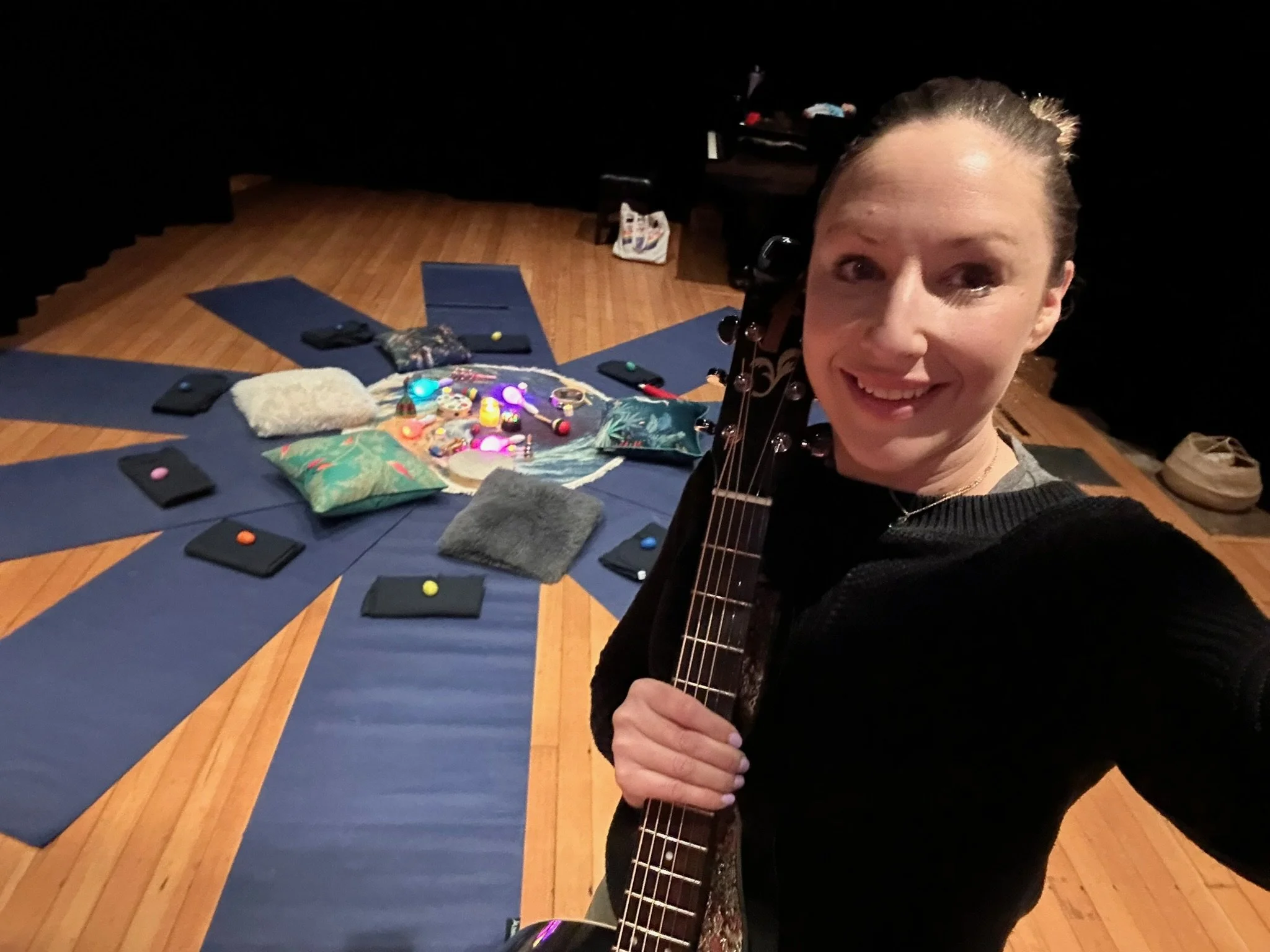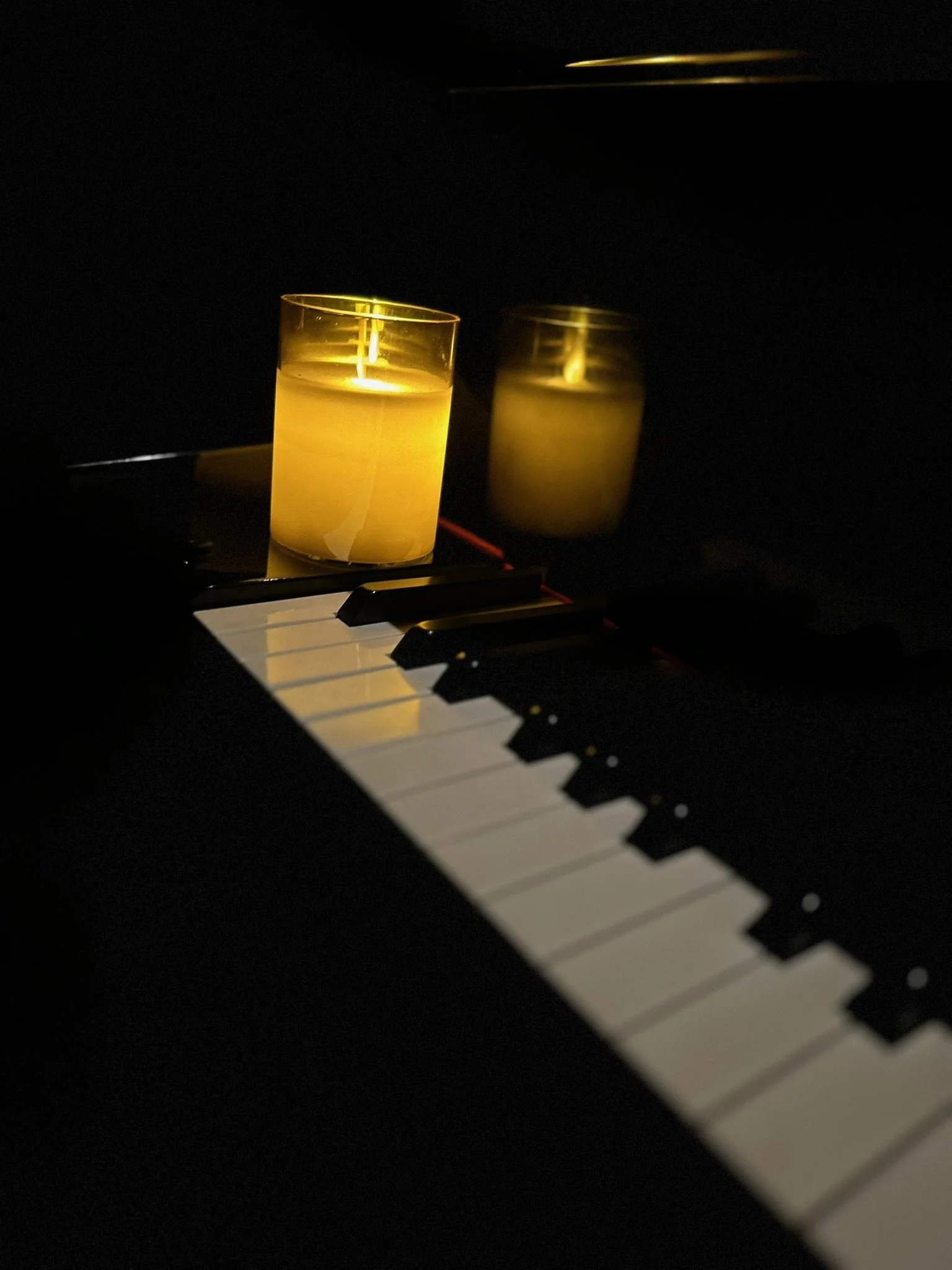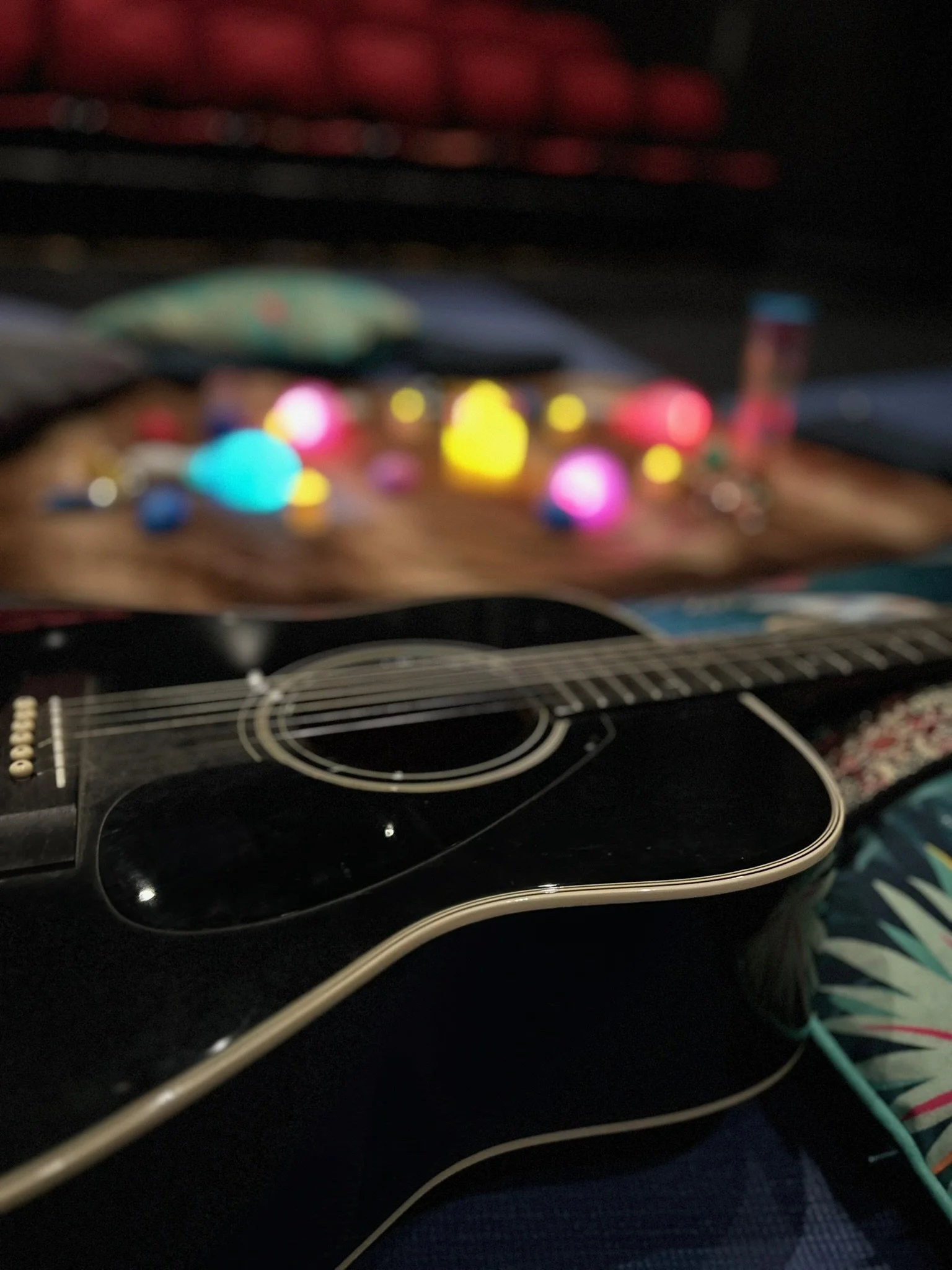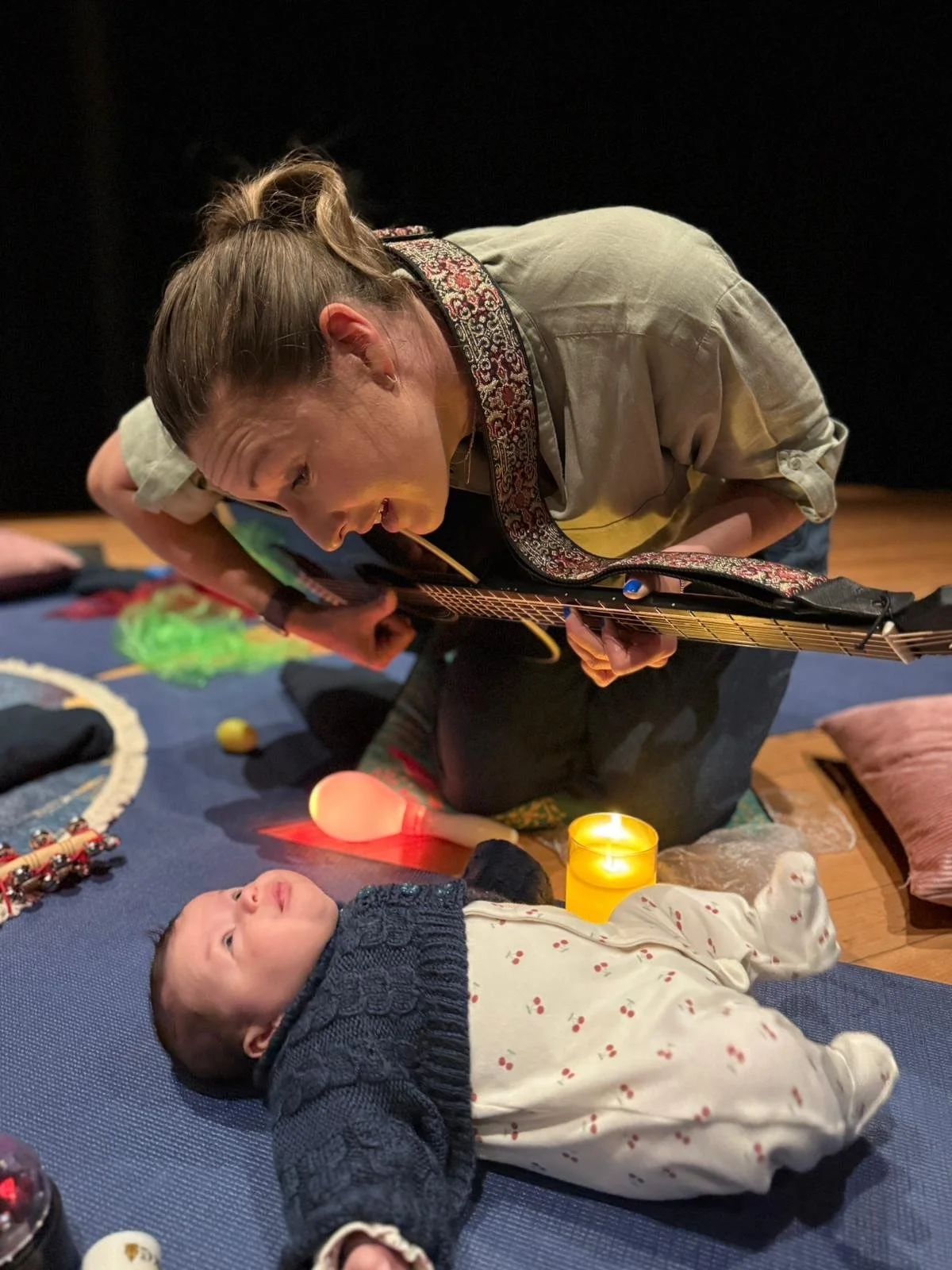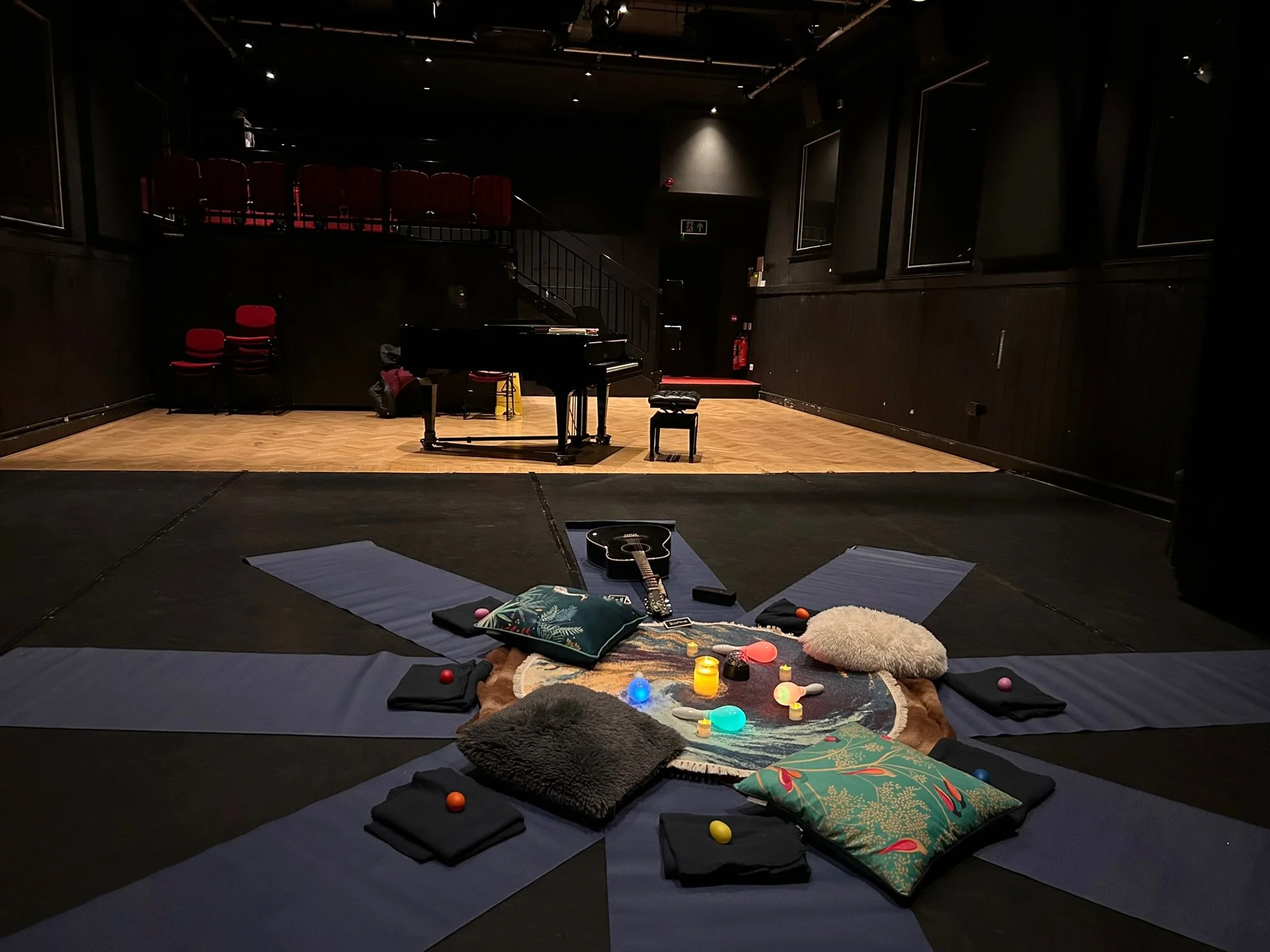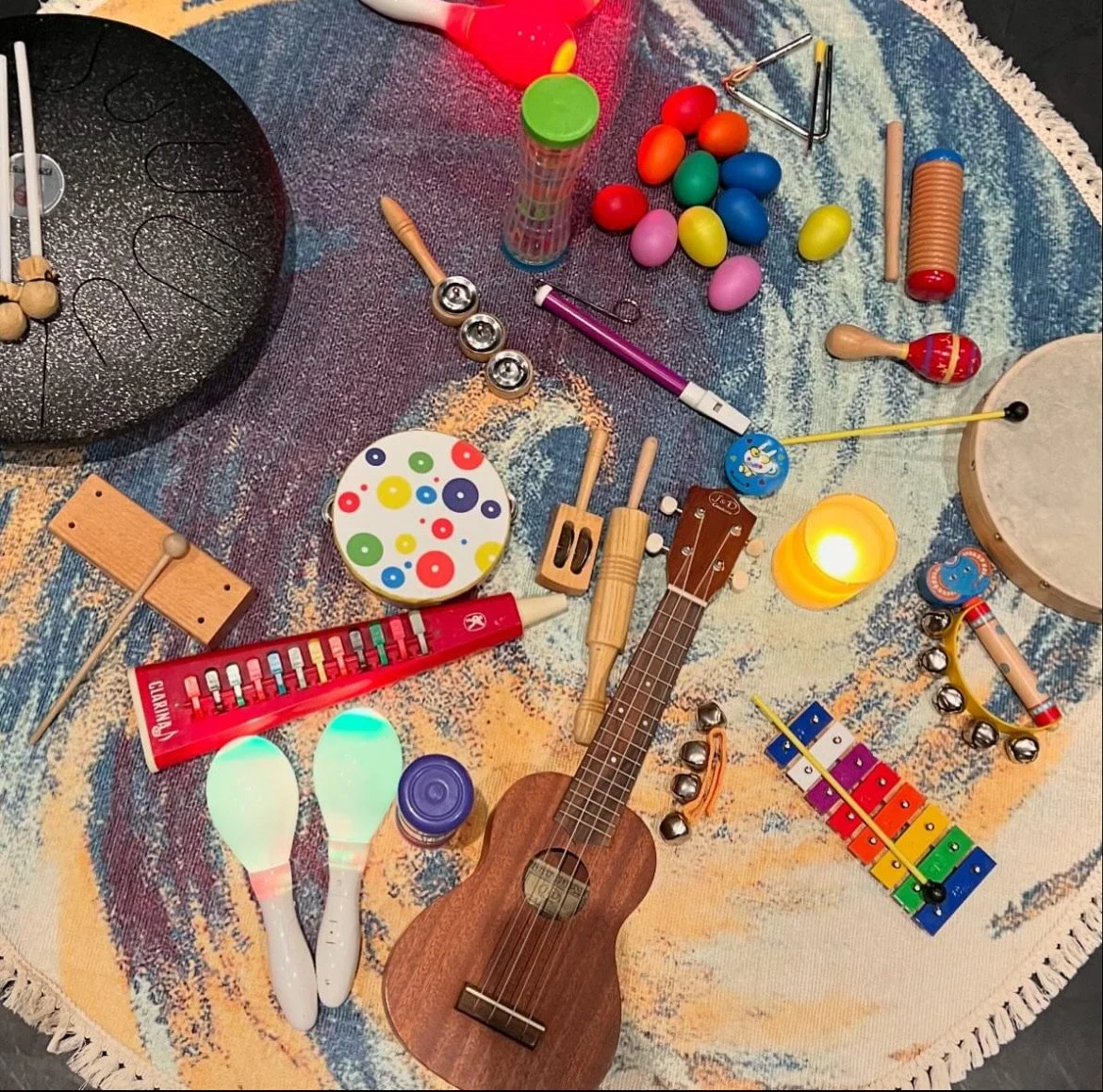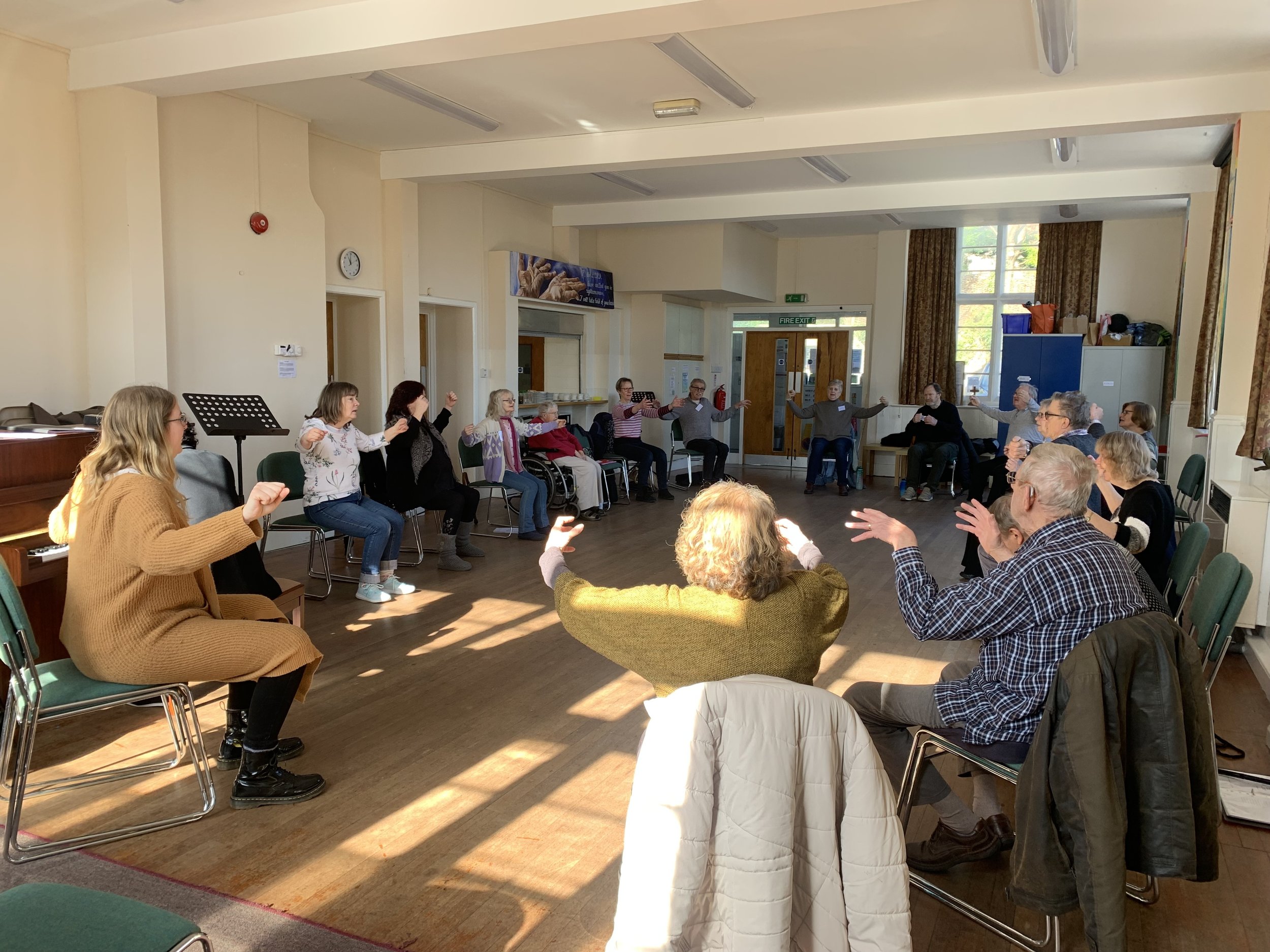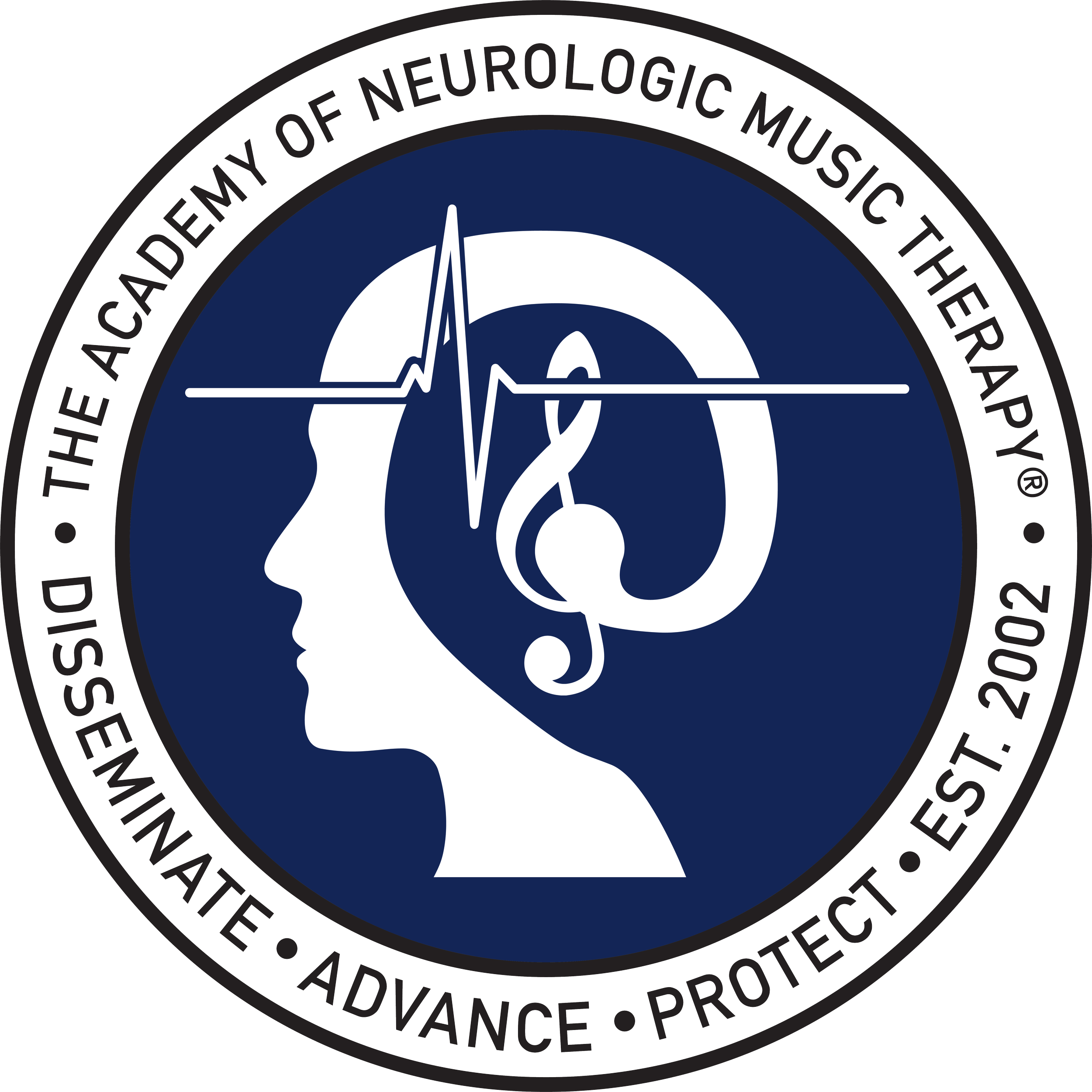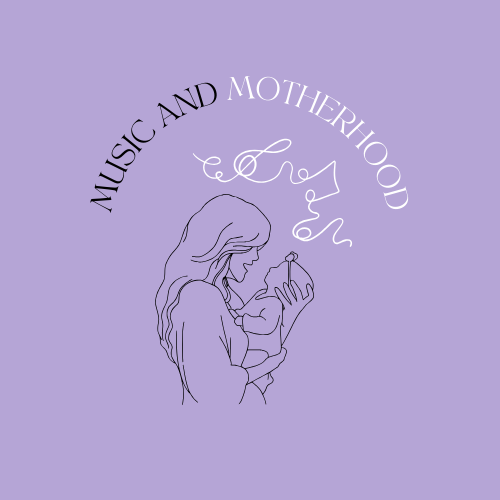What is Music Therapy?
Music therapy is an evidence-based practice that uses music to support health, wellbeing, and recovery. Music Therapists are Allied Health Professionals and frequently work as part of multi-disciplinary teams in a range of settings. As an HCPC registered Neurologic Music Therapist, Sophie uses specialist approaches that draw on rhythm, melody, and song to support areas such as movement, speech, memory, and emotional regulation.
Who can it benefit?
I provide music therapy for adults and young people experiencing:
Acquired or traumatic brain injury (see more about Neurologic Music Therapy)
Mental health challenges, trauma or anxiety
Adults and children with learning difficulties
Autistic Spectrum Conditions
Postnatal mental health and early parent-infant bonding (see more about Music and Motherhood)
Neurodegenerative conditions and age-related care
Stroke and related speech or motor difficulties (see more about Voices of Aphasia)
My Approach
My work is informed by both humanistic and neuroscience-based perspectives, combining creativity with evidence-based practice. I see music as a space for exploration — where clients can reconnect with parts of themselves that feel lost, silenced, or changed.
Music therapy can involve singing, playing instruments, listening, or simply being present with sound. You don’t need any musical experience to take part; the focus is always on what the music evokes and enables in the moment.
Session Options and Fees
Free consultation: by phone or video call to discuss your needs and answer any questions.
Individual sessions: from £60 for 50 minutes (price/length can range depending on circumstances)
Group sessions: from £85 per session (dependent on group size and needs)
Travel: additional costs may apply depending on location.
Ready to Begin?
If you’d like to explore how music therapy could support you, someone you care for or your organisation, get in touch for a free, no-obligation consultation.
Neurologic Music Therapy®
Neurologic Music Therapy® (NMT™) is an evidence-based, neuroscience-informed approach that uses music to support brain function and recovery after injury or illness. It applies rhythm, melody, and harmony to activate and strengthen neural pathways involved in speech, movement, and cognition.
In practice, this might involve rhythmic cues to support walking after a stroke or melodic patterns to help stimulate language in aphasia.
As an affiliate of the Academy of Neurologic Music Therapy®, I integrate NMT™ techniques within a flexible, person-centred framework — ensuring each session is creative, responsive, and grounded in care.
Music and Motherhood CIC
Music and Motherhood is a community interest company that supports postnatal mothers and their babies through the use of group music therapy in the Wiltshire area.
Our work brings together music therapy, psychology and community practice to nurture wellbeing, confidence and connection during early parenthood. Our sessions use live music, gentle interaction and reflective listening to help mothers explore their experiences of matrescence — the process of becoming a mother — while strengthening the bond with their babies.
To find out more and to book, please visit our website.
Voices of Aphasia
Voices of Aphasia is a charitable organisation offering community choirs for people living with aphasia — a speech and language difficulty often experienced after stroke or brain injury.
Currently based in Bath and Bristol, I shall soon be launching a Chippenham based choir, offering a supportive and enjoyable space to connect through singing, to strengthen communication and to build confidence.
Grounded in music therapy principles, our choirs celebrate expression in all its forms, focusing on what participants can do through the shared experience of music.
To find out more and to enquire directly, click here.
